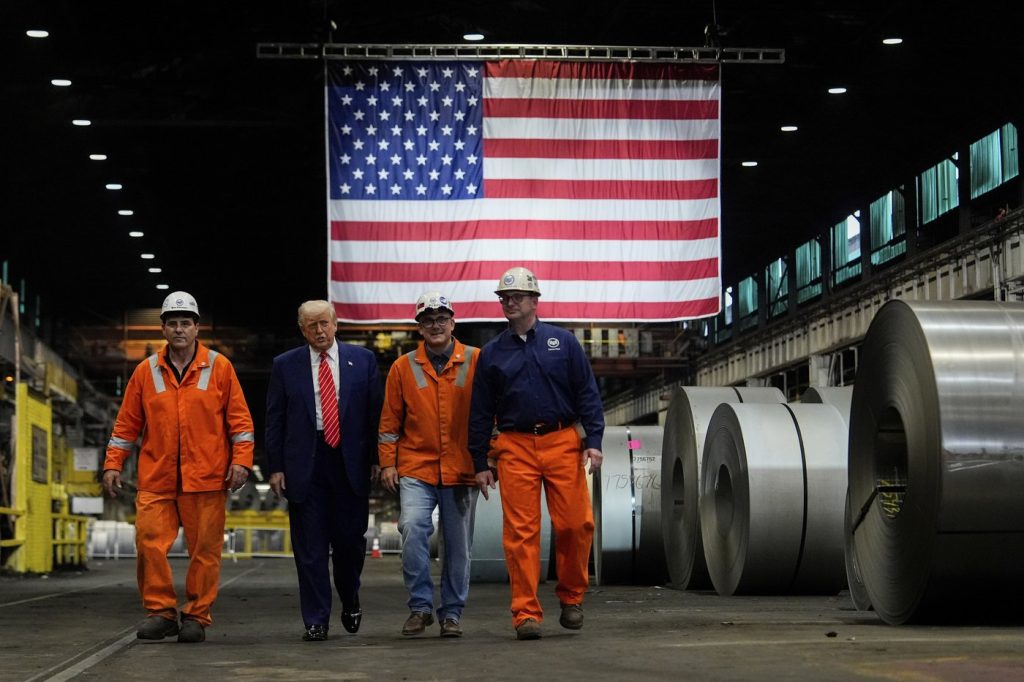NEW YORK (AP) — President Donald Trump's recent decision to double tariffs on foreign steel and aluminum has raised concerns about a potential ripple effect that could lead to higher grocery prices for American consumers. The newly announced 50% levy on these metals is expected to increase costs across various industries, impacting a range of consumer goods from automobiles to household appliances, and even everyday grocery items.
Usha Haley, a trade expert and professor at Wichita State University, pointed out that the tariffs are likely to raise grocery prices, stressing that while the intent may be to strengthen the U.S. steel industry, it may inadvertently strain consumer wallets. Trump has previously claimed that decreasing food costs is one of the reasons voters supported him, but this move could contradict that pledge.
The widespread use of steel and aluminum in packaging means that major grocery staples, such as canned goods, beverages, and pet foods, will likely see increased prices. The president of the Can Manufacturers Institute, Robert Budway, emphasized that the increased tariff on steel could further inflate the cost of canned goods in grocery stores. He noted that many domestic tin mill steel producers have reduced their output, making manufacturers heavily reliant on imported materials whose prices are now set to rise.
Food companies had already been wary of the impacts of tariffs prior to this latest hike, which is set to take effect soon. For example, Campbell Soup Company has expressed concerns about the tariffs' influence on prices, acknowledging that it may need to raise costs to mitigate the impact. Similarly, ConAgra Brands, which produces a variety of popular items, mentioned that reliance on imported materials is a challenge in light of the new tariffs.
Beyond canned goods, the economic implications of increased tariffs extend to various products and services. Experts warn that higher costs for machinery and construction materials, like steel and aluminum, could lead to increased expenses for food transportation and store construction. According to Babak Hafezi, an international business professor, price increases for agricultural equipment could trickle down to consumers, affecting not just grocery prices but the overall economy.
A rally held outside Pittsburgh saw Trump presenting the new tariffs to enthusiastic steelworkers, with United Steelworkers International union president David McCall affirming that while tariffs serve as a "valuable tool" to protect the industry, broader reforms in the global trading system are necessary to address the bigger picture.
The balance of benefits and costs associated with the tariffs remains complicated. While some jobs may be preserved or created in the steel industry, economic experts like Andreas Waldkirch suggest that the negative consequences—such as job losses in affected sectors and increased costs for consumers—could outweigh those benefits. The tariffs could yield limited advantages for a small number of U.S. steel jobs while potentially harming a much larger group of workers and consumers in other industries.
As consumers begin to feel the financial pinch from the inevitable price increases resulting from these tariffs, the long-term impact on the economy and everyday life could be profound.












